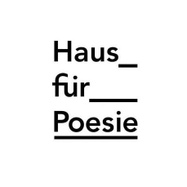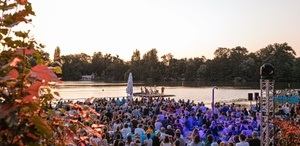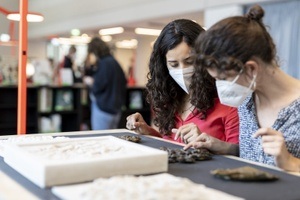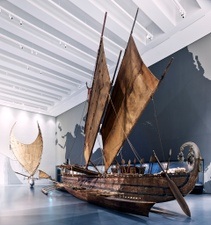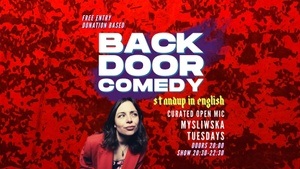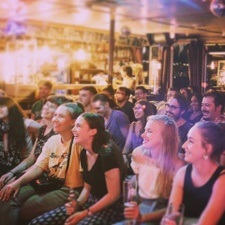WRITING IDENTITIES – when gender blurs in a poem my world sets a tooth in the gear
In the organizer's words:
Dome Hall
Writing Identities focuses on four poets from different countries who break out of traditional gender roles and find an innovative language to do so. With great imaginative power, they create new ways of expressing marginalized perspectives and experiences and question familiar patterns, attributions, modes of representation and staging, perception and the power of interpretation.
CAConrad's (born 1966 in Topeka Kansas) poetic work, including such famous books as "While Standing in Line for Death" and "Amanda Paradise" (Wave Books 2017 and 2021 respectively), is characterized by a ritual writing practice called (soma)tic. The result is a poetry that, in CAConrad's own words, "explores the seemingly infinite space between body and mind, using almost every possible THING around or on the body to direct the body outward and/or inward to the mind with deliberate and sustained concentration". This system is a poetic stepping-over-the-shore, a contacting of everything with everything (but especially an invocation of the dead and extinct species). "Poetry is the study of everything", reads one of the poems, and in another: "I have loved loosened my wilderness." CAConrad's writing and life, one merging into the other, deliberately eludes any external categorization: "Telling someone who they are instead of asking is where extinction gets its start."
The poem "Self-Portrait as Rainbow Boy" by Nigerian poet Logan February (born 1999 in Anambra) reads: "My color spectrum is rooted in disorder, ranging from bruised yellows to bloodshot eyes from crying so much." February writes poems in dialog with Sappho, Sylvia Plath, Miriam Makeba and Maggie Nelson. They are about mythical spirits that are cyclically reborn or about Àse, the Yorùbá concept of a metaphysical life energy closely linked to language. There are stories about the stoning of a homosexual boy and the attack on a gay night club in Orlando in which 49 people lost their lives. But there are also poems about absent fathers ("Your father never shows up when you need him. Even in that he is perfect, like God.") about beautiful boys "made of ravens", about transformations, lonely bodies and the dance of worry in the hands. February's work has been described as a "bold and willful paean to black, queer bodies. Biting and vibrant. Multi-layered and conceptual poetry, with confessional undertones and fatalistic intentions." (Dami Ajayi). At the festival, February will read poems from "Mental Voodoo" (Engeler Verlage 2024, German translation: Christian Filips, with the collaboration of Peter Dietze).
Harry Josephine Giles (born 1986 on Orkney) is a Scottish performer, poet and singer. Her first two volumes of poetry, "Tonguit" and "The Games " (2015 and 2018 respectively), were nominated for numerous awards. Her breakthrough came with "Deep Wheel Orcadia" (Picador Poetry 2021), a queer science fiction verse novel written in Orkney dialect and winner of the Arthur C. Clarke Award for Science Fiction. According to the award citation, "Deep Wheel Orcadia" is the kind of book that makes you rethink what science fiction can do and makes the reading experience seem strange in an exciting way, as the language itself becomes the hero of the book. In her poems, Giles repeatedly and playfully explores gender identities. She writes that gender is a small purple flower that only exists on the Orkney Islands and in the north of Scotland and that has two blooming periods. The new poems by Giles are populated by mythical characters (Thanatos, Zagreus, Magaera etc.) who become embroiled in polyamorous adventures.
Lisa Jeschke (born 1985 in Munich) first appeared with the volume "Die Anthologie der Gedichte betrunkener Frauen", which was initially written in English ("The Anthology of Poems by Drunk Women", MATERIALS 2018) and then translated into German in an expanded version by Lisa Jeschke herself (hochroth Munich 2019). These are texts that are political in the emphatic sense, trained on the English example. "Heimat Horror Poems" can be found in it, straight from the "Germany Shredder", with a cast of characters ranging from Pegida-Lutz to the "fucking protein angel of history", as well as reflections on the heart-stove complex, in which the difference between the sexes is reduced to its economic core. The critic Florian Kessler wrote: "Jeschke's poems are attacks on all systematics, right down to the changing font sizes." On this evening, they will read poems from the chapbook "Left Freedom" (Critical Documents 2024).
Moderation: Luca Mael Milsch
The event will be interpreted English-German. With the kind support of ECHOO Konferenzdolmetschen
Project management: Jutta Büchter
With: CAConrad, Logan February, Harry Josephine Giles, Lisa Jeschke
Supported by:
British Council. The poesiefestival berlin is a project of the Haus für Poesie in cooperation with silent green Kulturquartier and the Akademie der Künste and is funded by the Hauptstadtkulturfonds.
This content has been machine translated.Location
Organizer
